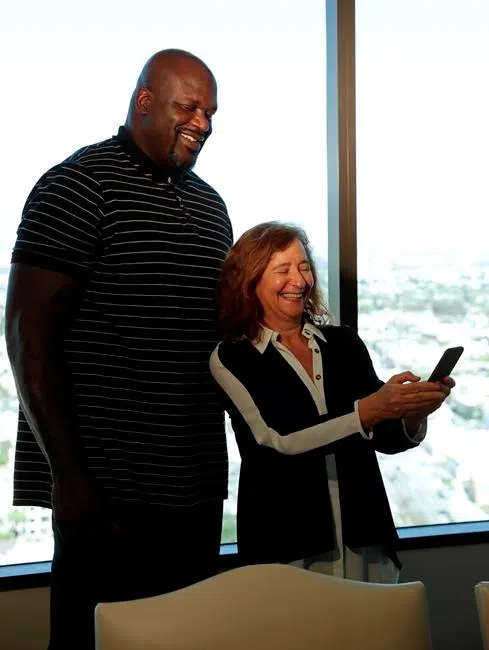
Shaq attacks verse in new TV series “Poetry in America”
LOS ANGELES — Shaquille O’Neal called himself “The Big Baryshnikov” and “The Big Socrates” in his days in the NBA. Now he can add “The Big Shakespeare.”
The basketball Hall-of-Famer, TNT TV analyst, commercial pitchman and onetime rapper is putting poetry on his lengthy resume as part of a new public television series.
He brings his best bard to a dramatic reading of a poem in his episode of the 12-part “Poetry in America ,” then discusses it with Elisa New, a Harvard English professor who hosts the show.
“I’ve always been into poetry,” O’Neal said in an interview with The Associated Press in a sunlit conference room overlooking the Los Angeles skyline. “I’ve been writing rhymes all my life.”
